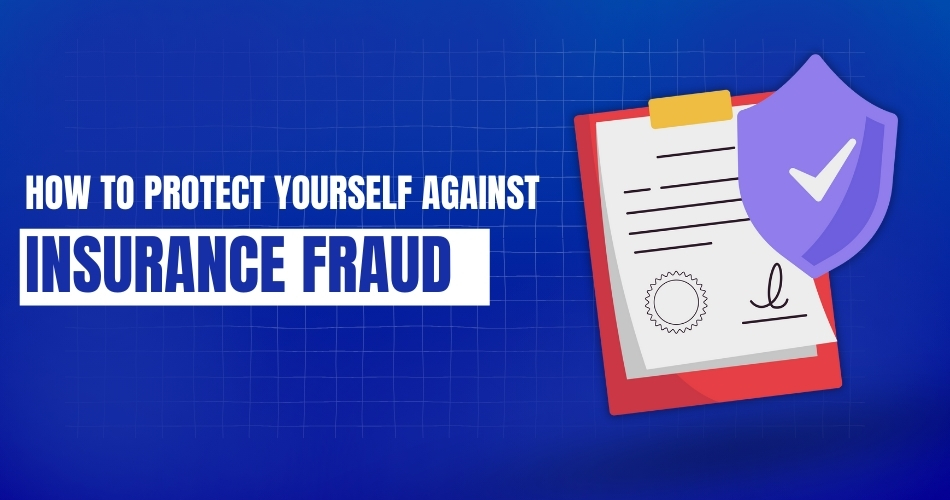Insurance fraud is rampant and carries severe financial loss on its victims, whether persons or business entities. This involves an act that an individual performs with the sole aim of deceiving an insurance company so that it can make a payment or rendering service or anything else that benefits the one causing it. While many people see fraud as a problem for someone else to deal with; the genuine position is that it can impact literally any person.
Protecting yourself from insurance fraud and getting to know most of the various tactics that are used by fraudsters is one way of being armed against potential deceit. You will learn through this guide about the many different ways that insurance fraud can be perpetrated, what warning signs there are, and finally a few particular ways through which you can save yourself from becoming a victim.
Understanding Insurance Fraud
Various forms can be taken, and it may deal with each type of insurance, whether it be concerned with health, auto, home, or life insurance. The fraud is aimed at many: individuals and insurance companies, which can be quite sophisticated in the methods and very difficult to identify. Here are some of the common types of insurance fraud:
False Claims: This is a situation where a person presents a claim for an event that never occurred or exaggerates the level of loss or injury to claim more money.
Staged Accidents: A fraudster deliberately causes an accident for reasons such as filing a claim for damages or injuries.
Premium Diversion: This occurs when an insurance agent pockets the premiums that are supposed to be sent to an insurance company from his or her client. Health Insurance Fraud: The fraud may be in terms of overcharging for services not done, unnecessary medical procedures, or claiming for a greater level of care than provided.
Common Warning Signs of Insurance Fraud
Realize the red flags of insurance fraud to prevent the scam before it happens. Some red flags to look out for are:
Pressure to act fast: Most of the time, con artists induce a sense of urgency for you to sign documents or make decisions quickly without funds so you do not take time to read the fine details.
Unsolicited Offers: Be careful of any unsolicited offer of insurance or anybody who calls you from out of the blue with an offer that simply sounds too nice to be true. Document Discrepancies: Scrutinize your documents. Look for any discrepancies or mistakes in the data, such as policy numbers that don’t match, incorrect endorsement details, or misspelled names.
Requests for Cash Payments: A very handful or genuinely legitimate insurance companies will put in a claim for cash as a mode of payment. Any person who requests to be paid in cash is probably a scammer.
How You Can Protect Yourself Against Insurance Fraud
Insurance scam artists will try to dupe you until you protect yourself from getting dupe. Following are the few preemptive steps to protect you from get scam:
Research and Verify Insurance Providers: Before signing any dotted line with a provider, conduct adequate research into their qualifications, reviews, and whether they hold a valid license and are trustworthy. One may also want to check in with one’s state insurance department to help verify this particular company’s legitimacy.
Know Your Policy: Review your insurance policy to know what is cover, the exclusions, any limitations, etc. Ask your insurance agent if there is anything you do not understand.
Maintain Adequate Records: Have thorough records of all the correspondence you make with the insurance company. Any date, content of an email, phone call, or letter should be record. Make sure to file documents related to the policy, claims, and payments.
Report any suspicious activities: If you encounter a fraudster, report it to your insurance company and relevant authorities immediately. Most insurance companies offer fraud hotlines for reporting such activities.
Be cautious with personal information: Protect your personal information, including your Social Security number, insurance policy numbers, and bank account details. Never share this information with untrusted sources and be wary of unnecessary requests for information.
Don’t sign blank portions of documents: Avoid signing blank forms or documents related to insurance. Fraudsters may fill in unsigned sections with incorrect information, enabling them to file false claims in your name.
Periodically Review Your Statements: Scrutinize your insurance statements periodically to ensure that all claims and charges are legitimate. If you find statements you can’t verify or believe you didn’t make, contact your insurance company immediately.
AapkaPolicyWala.com:
AapkaPolicyWala.com plays a vital role in combating insurance fraud. It provides users with essential information to make informed insurance decisions. The platform advises on identifying and avoiding scams, whether purchasing a new policy or reviewing an existing one. AapkaPolicyWala.com ensures a safe and hassle-free journey through the insurance landscape.
Conclusion
Insurance fraud is a serious threat to losing your financial stability and peace. You, however, can prevent it by being aware and taking steps in advance. Always be alert, trust your gut, and use resources like AapkaPolicyWala.com to be steps ahead of fraudsters. Remember that safeguarding your finances from insurance fraud secures protection for the integrity of the entire insurance industry. Keep informed, stay cautious, and take the necessary steps to keep your insurance experience safe and secure.

